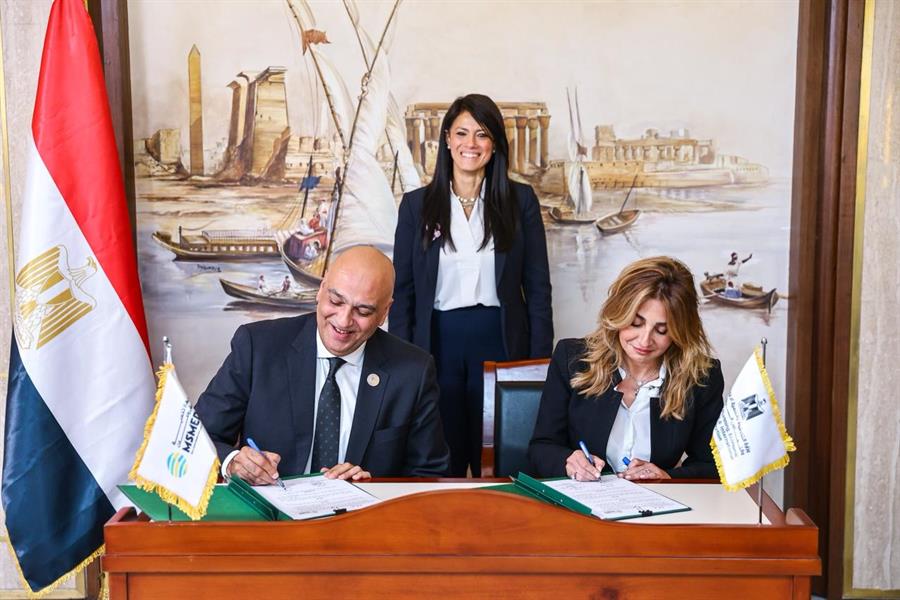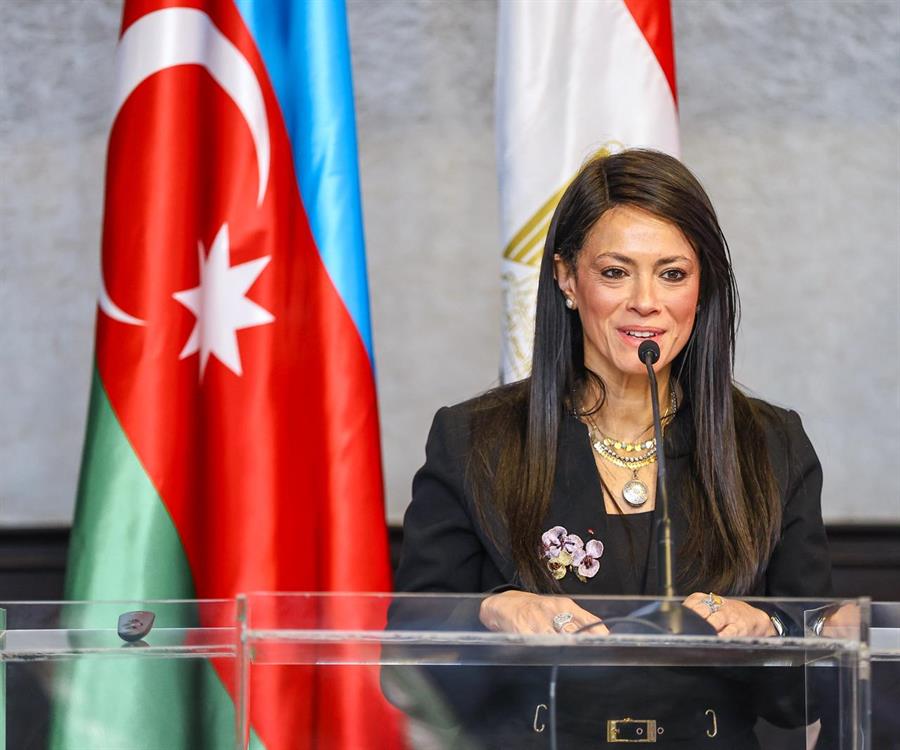Egypt and OECD Discuss Future Collaboration at Egypt-EU Investment Conference

29 June 2024
H.E. Dr. Hala El-Said, Minister of Planning and Economic Development, recently met with Mary Beth Goodman, Deputy Secretary-General of the Organisation for Economic Co-operation and Development (OECD), to discuss ways to enhance future cooperation. Attendees included Dr. Ahmed Kamaly, Deputy Minister of Planning, and Carlos Conde, Head of the Middle East and Africa Division in the OECD's Global Relations Secretariat. The meeting took place on the sidelines of the Egypt-EU Investment Conference, held from June 29-30, under the theme “Unleashing Egypt’s Potential in a Rapidly Changing World.” The conference, under the auspices of President Abdel Fattah El-Sisi, was attended by Ursula von der Leyen, President of the European Commission, Dr. Mostafa Madbouly, Prime Minister of Egypt, along with high-ranking ministers, officials from Egypt and the EU, development partners, and leading executives from Egyptian, European, and global companies.
During the meeting, Dr. Hala El-Said expressed her appreciation for the entire OECD team for their robust support and efforts within Egypt’s Country Program, which focuses on five main pillars: inclusive economic growth, innovation and digital transformation, governance and anti-corruption, statistics, and sustainable development. She emphasized that significant achievements have been realized, including the launch of the Egypt Economic Report and the country review report on AI policies in Egypt, thanks to the OECD’s efforts.
Dr. El-Said highlighted Egypt’s commitment to implementing the OECD's recommendations from the reviews. Following the economic report, a ministerial committee was formed to coordinate ongoing actions related to the proposed policies. This proactive approach ensures the integration of OECD expertise into Egypt’s comprehensive national structural reform agenda. Additionally, the recommendations from the AI review support the development of the second edition of the National AI Strategy to enhance Egypt’s AI ecosystem.
She also expressed her anticipation for the outcomes of the next phases of cooperation, including the launch of the Green Growth Policy Review and the nearing completion of several projects related to productivity improvement and higher education review. These initiatives underscore the fruitful partnership between Egypt and the OECD, highlighting that this collaboration is an ongoing journey aimed at transforming recommendations into actionable roadmaps for real change.
Regarding the Egypt-EU Investment Conference, Dr. El-Said stated that the event represents a unique platform for exploring promising investment opportunities in Egypt. The timing of the conference is crucial, given the continuous reforms and recent measures undertaken by the Egyptian government to stimulate the investment climate. These measures include enhancing private sector participation, in line with the State Ownership Policy Document, to create a more dynamic and competitive economic environment. The conference also serves as a catalyst for productive discussions with multilateral banks, private sector investors, and international financial institutions to facilitate the attraction of significant private investments in various priority sectors.
Dr. El-Said added that Egypt is seeking technical support from the OECD to work closely with all stakeholders to develop actionable policies that attract more private investments in priority sectors such as renewable energy and green hydrogen. She noted that ongoing cooperation within the framework of the program with the Suez Canal Economic Zone is a promising area for boosting investments across different sectors. Additionally, dialogues between the public and private sectors conducted under the program aim to facilitate private sector investments in infrastructure. She affirmed that there is a substantial opportunity for the OECD to assist in exploring innovative financing solutions, including blended finance and green financing tools, as part of the Clean Energy Finance and Investment Mobilisation (CEFIM) review, which will be crucial for attracting private investment in renewable energy.
Dr. El-Said concluded that continued collaboration with the OECD will pave the way for a sustainable and prosperous future. She looks forward to deepening the partnership to support Egypt’s national reform agenda and disseminate the knowledge and best practices gained to other countries in the region. She also welcomed the opportunity for Egypt to host the OECD’s Middle East and North Africa Women’s Economic Empowerment Forum, to participate in multilateral discussions aimed at enhancing financial inclusion and access to finance for women entrepreneurs in the region.









